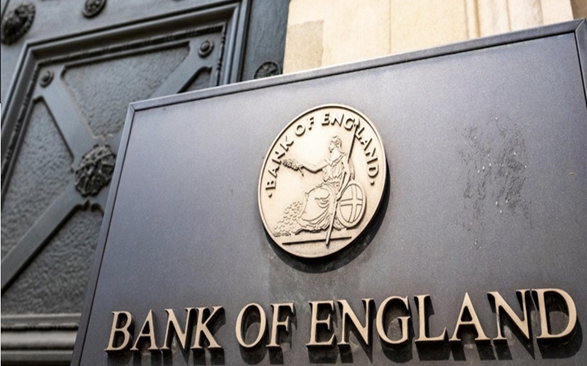By Jude Ayua
The Bank of England (BoE) has stated it will press on with creating a central bank digital currency (CBDC), according to a Reuters report. The BoE Governor Andrew Bailey said the Bank is moving on with the plan even “as commercial banks risk failing to keep up with less-regulated tech firms.”
Bailey’s remarks are based on his long-held preference of CBDCs “as a more likely future for electronic payments” over stablecoins. In a recent development, Bailey has emphasized advantages of CBDC in pushing innovation over commercial bank money.
“For commercial bank money to function effectively, it must keep pace with the needs of its users. Our work on retail CBDC is considering these trends in the payments landscape closely. Absent innovation in commercial bank money, central banks may be left as the only game in town insofar as retail payments innovation is concerned,” Bailey said in a speech at the Group of Thirty meeting in Washington, a forum for central banks and commercial bankers.
Read also: Brazil’s Central Bank tests DeFi features in its CBDC pilot.
The Digital Pound
The BoE and the Britain Ministry of Finance are jointly considering the decision to proceed with a state-backed digital pound but not before 2025, following a consultation which raised privacy concerns.
Data from the Atlantic Council shows the BoE’s CBDC status is at development stage with its use case targeting retail and wholesale. The Bank and His Majesty’s Treasury released a consultation paper in February 2023 outlining the case for a digital pound, but concluded that it was too early to decide whether to introduce it. With the coming of the Labour Party in July 2024, the party expressed its full support for a CBDC development.
Read also: 134 Countries Exploring CBDCs: 8 Major Findings You Should Know.
Commercial Banks and Digital Currencies
While Britain already has a reliable electronic payment infrastructure, the BoE is confident that innovative forms of digital currency could offer more options for automatic payments. Notwithstanding, Bailey believes that if not for their reluctance, commercial banks still have potential for this innovation.
“From the perspective of the Bank of England, we are putting a lot of emphasis on enabling digital and other innovation in the wholesale world … We have not yet seen enough evidence that the innovation will happen in commercial banks… For me, this justifies why we must continue to prepare for retail CBDC,” Bailey stated.
FT opines that “commercial banks might be avoiding innovation because they made too much profit from the current system.”
It is interesting that the Bank of England is optimistic about the potential of CBDC as an innovative and future method of payments. Lastly, the Bank affirms its plan to launch a CBDC, while also acknowledging the attitude of commercial banks toward digital currencies.
Read also: IMF proposes framework for CBDC adoption
About the Author: Jude Ayua is a policy analyst at CAB. A lawyer, Jude is an associate at Infusion Lawyers where he is a member of the Blockchain & Virtual Assets Group. He is also a member of the Policy & Regulations Committee of the Stakeholders in Blockchain Technology Association of Nigeria (SiBAN). Jude reports and writes on crypto policy and regulations. jude@infusionlawyers.com
Discover more from Crypto Asset Buyer
Subscribe to get the latest posts sent to your email.




